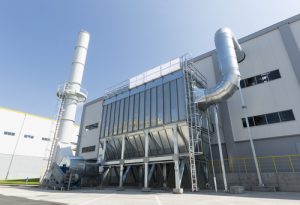
The U.S. House of Representatives on March 8 approved a bill shepherded by members of the Republican delegation from Pennsylvania that would help electric power plants converting coal refuse into energy continue operating by decreasing emissions standards that are not achievable for all plants.
U.S. Reps. Glenn “GT” Thompson (R-PA), Mike Kelly (R-PA) and Bill Shuster (R-PA) joined U.S. Rep. Keith Rothfus (R-PA) in introducing the Satisfying Energy Needs and Saving the Environment (SENSE) Act, H.R. 1119, on Feb. 16, 2017. Republican U.S. Rep. from Pennsylvania Lou Barletta also sponsored the bill.
Specifically, the proposal eases emission limits for unsafe air pollutants from electric utility steam generating units that turn coal waste into energy, according to the congressional record summary, and directs the Environmental Protection Agency (EPA) to allow utilities to select a compliance standard from a list of specified standards.
The SENSE Act ensures environmentally beneficial coal refuse-to-energy facilities maintain operations performing important cleanup activities in Pennsylvania and around the country, noted staff from the House Energy and Commerce Subcommittee on the Environment in a statement last week.
Lauding the bill’s approval, U.S. Rep. John Shimkus (R-IL), chairman of the House Energy and Commerce Subcommittee on the Environment, pointed out the benefits of coal refuse-to-energy plants, which he said “burn waste coal to produce electricity, and the resulting ash is then used to remediate the land. Thus far, these plants have eliminated 214 million tons of waste coal and restored thousands of acres of land and 1,200 miles of rivers and streams.”
Nevertheless, Rep. Shimkus said, the EPA has risked their ongoing operations by imposing inappropriate standards. “The SENSE Act addresses the problem and still requires stringent emissions reductions at these waste coal-to-energy plants, but ones that are achievable for these facilities,” the subcommittee chairman said.
There are 19 coal refuse-to-energy plants across the United States and 14 of them are located in Pennsylvania. However, acid gas limitations imposed under the EPA’s Mercury and Air Toxics Standards create a “threat of imminent closure” to coal refuse-to-energy plants, according to the Republican Policy Committee.
“In addition to creating an estimated 3,600 jobs, many of which are in economically distressed communities, these facilities create an average of $26 million per year in environmental value for the State of Pennsylvania alone,” said a report submitted by the Energy and Commerce Committee on the legislation.
H.R. 1119 has been referred to the U.S. Senate Environment and Public Works Committee for its consideration.



